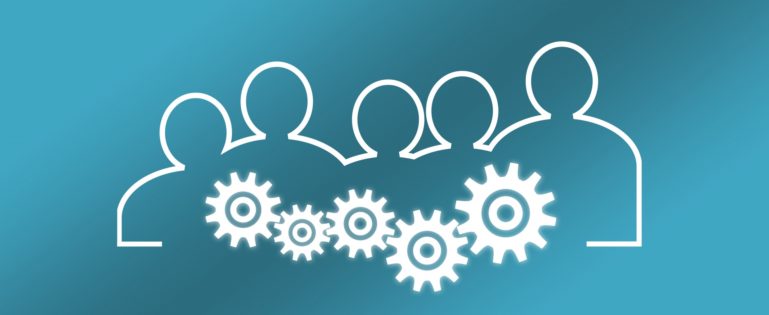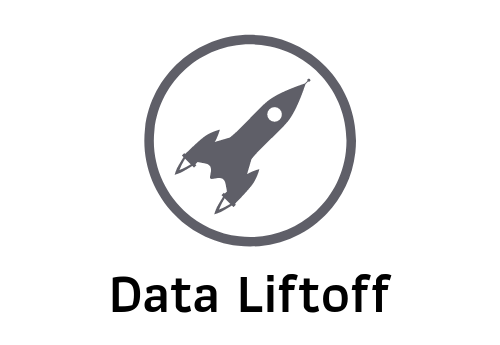Breaking into Analytics – Finding Your Data Community

Recently, several people reached out to me asking how they can either break into a data role for the first time or make the jump to a new role within analytics. None of them were looking for an “in” or referral for a particular job. They were genuinely hungry to learn and grow their way into a role. I always caveat advice with “your mileage may vary”, but I thought I’d sum up what I shared, because believe in communities play a big part in career growth.
Join Communities
The number of online data communities has exploded over the past few years. In fact, it can be overwhelming to keep track of them all. Personally, I enjoy Slack communities, but there’s also some great subreddits as well as informal Twitter communities centered around individuals in the data space. Here are some I recommend.
Slack Communities
- dbt Slack – This is the first Slack community I really caught on to, and just like dbt it has grown like crazy. Even if you’re not using dbt for data modeling, you’ll find general chatter about all things data, job postings, and even geographic specific channels for the day when we can get together in person again.
- Meltano – Like dbt, Meltano is a open source framework that’s building a community around its product. Though not as far along as dbt, the Meltano Slack community already has over 1000 members and is quite active.
- Great Expectations – Another open source product with a Slack community. Sense a theme here? I put Great Expectation into the “data observability” space, but whether you want to learn more about data management, data governance, or just connect with some interesting folks in analytics it’s worth adding another workspace to your Slack app.
- Airbyte – Another Slack community with over 1,000 members and growing! And like the previous three, it’s a community based around a thriving open source product.
I find interesting people to follow and interact with on Twitter in one of two ways:
- Following brands that create and share great content, and see who else follows them and engages with them on Twitter. There’s an overlap here with the brands running Slack communities, but I also like to keep an eye on the feeds of other products making waves in the analytics space such as Snowflake, Census, Fivetran, Astronomer, Airflow, and many more.
- Following individuals doing cool stuff in the data world. Sometimes I hear them on podcasts, read their books or blog posts, or meet them in Slack! However you find them, once you start following a few you’ll build up your list of other favorite follows quickly. (see Find and Consume Quality Content below for tips on finding folks like this)
I discuss more on what to do with all those people and brands you follow in the next section, but the first step is building up a base to interact with.
Subreddits and Other Forums
Personally, I’m not as into Reddit and online forums in general as I am Slack and Twitter, but if you find them valuable there are plenty out there. For example, /r/dataengineering is relatively active and hits on data engineering discussion rather than the data analysis focused communities that are more prevalent elsewhere. Hacker News covers a much broader set of topics, but I’ve noticed more data and analytics discussion over the past year or two. In fact, it drives traffic to this blog!
Follow, Share, Engage
Once you’ve found communities, I suggest wading in rather than making a big splash. This may speak to my personality more than anything, but I typically like to follow and listen first, then start sharing and engaging with the community. That said, don’t be shy! Asking questions, complementing others work and ideas, or just taking part in random conversation will help you stand out, learn, and make new connections. Just don’t go in guns blazing with debate, hot takes, and requests for someone’s time out of the gate. Get to know the community first, and strive to become part of it organically.
While some communities have official rules and a code of conduct (most Slack communities for example), others develop informal norms. This is especially true for Twitter. You’ll find pockets of data people that group together, and interact in their own ways. Whatever you do, make sure you’re respecting others and not making debates personal.
Find and Consume Quality Content
In addition to consuming content for learning, I’ve connected with a number of data folks because I read, watched, or listened to their work. There’s no shortage of content out there, so the trick is finding the good stuff and becoming part of the community that shares your interest in it.
So, how do you find great content? A few tips:
- Find a handful of data-related podcasts, and check out the guests that you enjoy most. The majority of podcasts have new guests in each episode, so you’ll have a lot to choose from. As starter, some of my favorite podcasts include: The Data Engineering Podcast and Drill to Detail.
- Some of those Slack communities have #random channels where community members share all sorts of interesting blog posts and other content. It’s essentially feed of curated content to choose from.
- Some personal bias here, but look for published work in the data space. My book is one of many data-related titles that have come out recently. As a bonus, there’s a lot to learn from reading long form work in addition to discovering authors and their communities.
- Lots of conferences and Meetups post talks on YouTube. Even if you couldn’t attend live, you’ll get to check out a wide range of topics and speakers. Some examples include the Airflow Summit, Coalesce, and all of the past PyData events.
When I find an creator or speaker that produced something I love, I like to:
- Share a link to their work on Twitter/LinkedIn and tag them in the post. You’ll find some of them will re-share your post or thank you for your interest.
- Find their blog, if they have one, or see what other talks and videos they’ve posted. You might find that you’re into a lot of their work, or perhaps it was just one piece of content that struck you.
- Check out their social feeds and see what they’re sharing and who they’re connected to. It might just lead you to a broader community.
Give Back
Something I struggled with early in my career was the feeling that I was always consuming blog posts, answers on Stack Overflow, and other online content while not producing any myself. I never felt I had anything of value to add, and I was always learning but never teaching.
Gaining more experience in the industry certainly gave me ideas on things to share, but I wish I’d done it sooner. You might be surprised by how even the most obscure topic in a short blog post ends up helping someone out. The same goes for engaging in conversations online or in-person. Will some things you write and share fall flat? For sure. I’ve written blog posts that very few people have ever read! However, a lot of opportunities, followers, or simple “thank yous” have come my way because I took the time to share knowledge. Giving back is not only a great feeling, it’s the foundation of a community.
Cover image courtesy of https://pixabay.com/de/users/geralt-9301/
